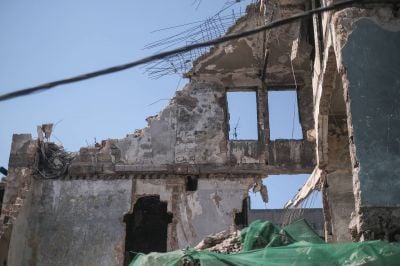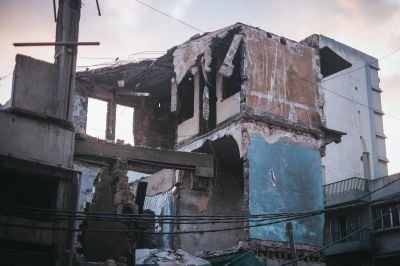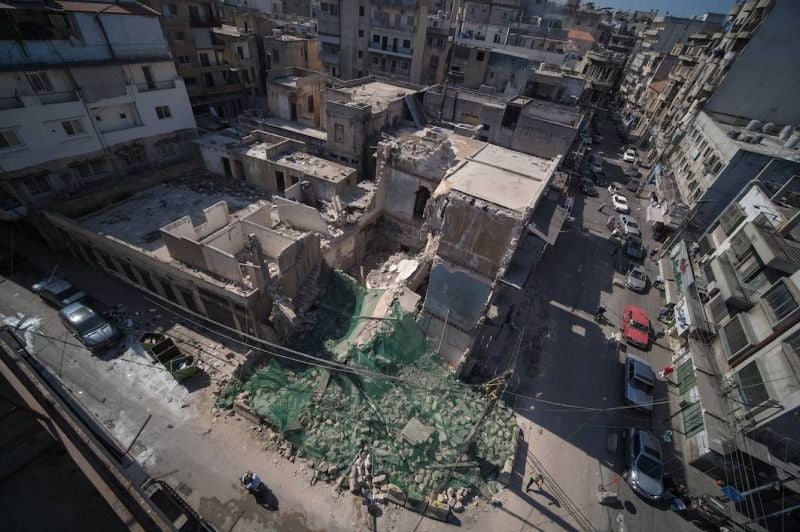
A collapsed building in Zahriyeh, Tripoli, on Sept. 21, 2023. (Credit: João Sousa/L'Orient Today)
BEIRUT — Residents of a 300-year-old building in Tripoli gaze out from their balcony onto the remnants of a neighboring building that has collapsed.
They tell L'Orient Today of their harrowing experience when the structure, which municipal authorities previously warned could fall down, finally collapsed late at night last Monday.
The three-story building, located in the Zahriyeh area, was not occupied. It had long been vacant, according to witnesses, and only one minor injury resulted from the collapse.
One week after the incident, neighbors share their accounts of the ill-fated evening.
Mohammad's story
Some sections of the building started to collapse hours earlier. Locals say they suspected a big fall was imminent, and a small crowd gathered at the scene.
Mohammad al-Mahmoud, who lives across the street, was standing outside. He says the building had languished in abandonment for several decades. A portion of it already collapsed approximately four years ago, prompting the municipality to erect a "danger of collapse" sign.
Following the massive Feb. 6 earthquake, the building's existing cracks got worse, claims Mahmoud.
As he was speaking to the press Monday night awaiting the fall, the entire building started to give way. Mahmoud and others ran away from the structure to avoid falling debris.
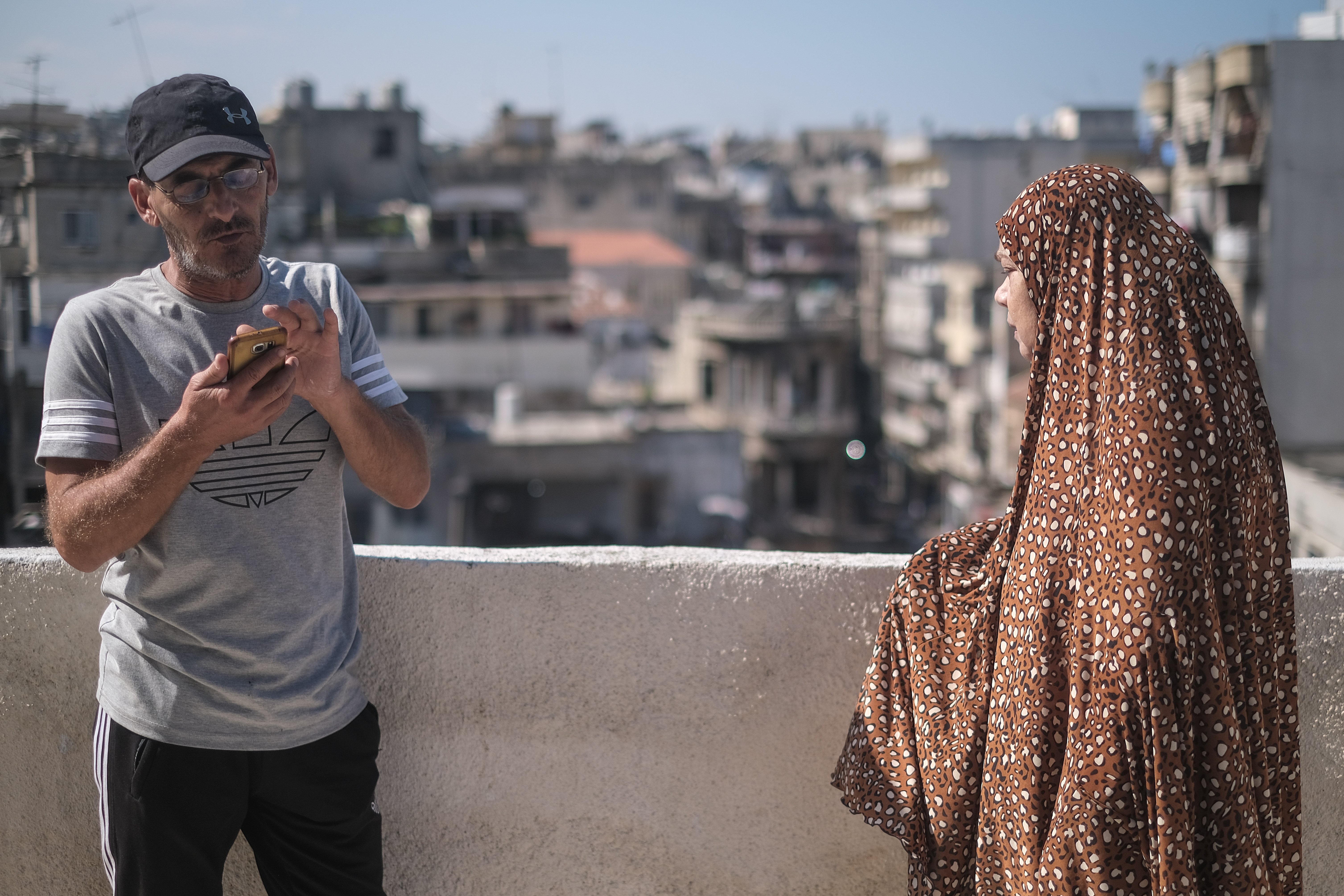 Local resident Mohammad al-Mahmoud with a neighbor who witnessed the collapse of the building from their homes, on Sept. 21, 2023. (Credit: João Sousa/L'Orient Today)
Local resident Mohammad al-Mahmoud with a neighbor who witnessed the collapse of the building from their homes, on Sept. 21, 2023. (Credit: João Sousa/L'Orient Today)
Rima's story
Rima, who lives in the same building as Mahmoud, recalls she was in her living room on the top floor when a deafening cacophony broke the silence. Remembering the Feb. 6 earthquake that shook Tripoli awake, she wasn't sure whether the noise was an explosion or a seismic event. Rima requested a pseudonym in order to protect her privacy.
She says she ventured onto the balcony to investigate, only to find that the world around her had transformed into a cloud of dust with little visibility.
"Then people started rolling in," Rima added. "The shock was enormous!"
Mahmoud, her neighbor, says the residents of the neighborhood rallied together, signing and submitting a petition to the municipal authorities, imploring them to take decisive action regarding the precarious building.
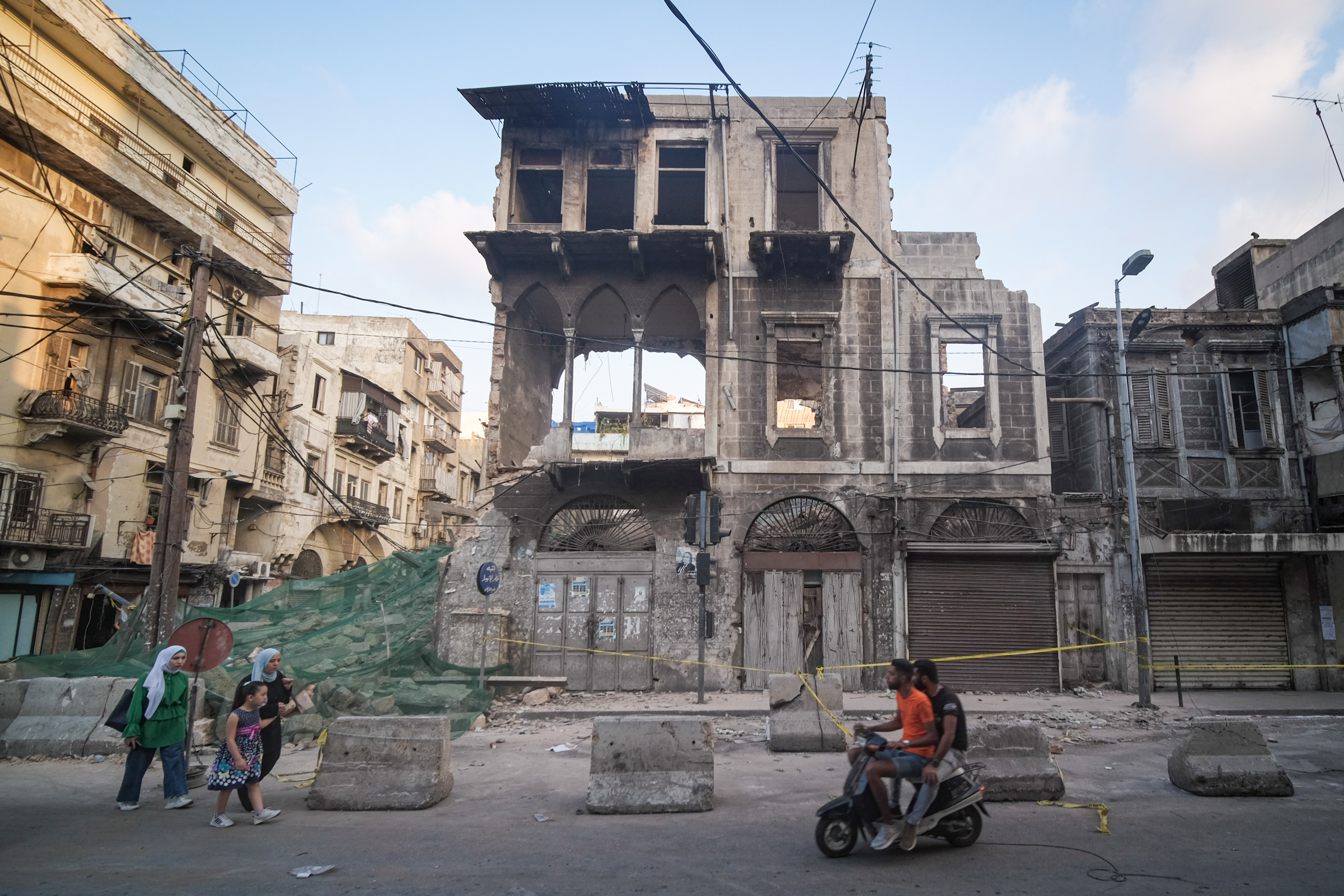 The collapsed building in Zahriyeh, Tripoli, on Sept. 21, 2023. (Credit: João Sousa/L'Orient Today)
The collapsed building in Zahriyeh, Tripoli, on Sept. 21, 2023. (Credit: João Sousa/L'Orient Today)
Souad's story
Souad al-Masri, a 40-year-old inhabitant of a building situated just one street away from the collapsed building, emphasizes that the building's vulnerability was known to the neighborhood's residents for at least a decade.
She, too, was on her balcony when the structure crumbled, initially mistaking it for an earthquake. Unfazed, she explains that the recent earthquake and its aftershocks left a lasting impact and she had grown accustomed to such occurrences.
"It was a normal event, as we had expected it; we had expected the structure to collapse at any moment," she remarks with resignation.
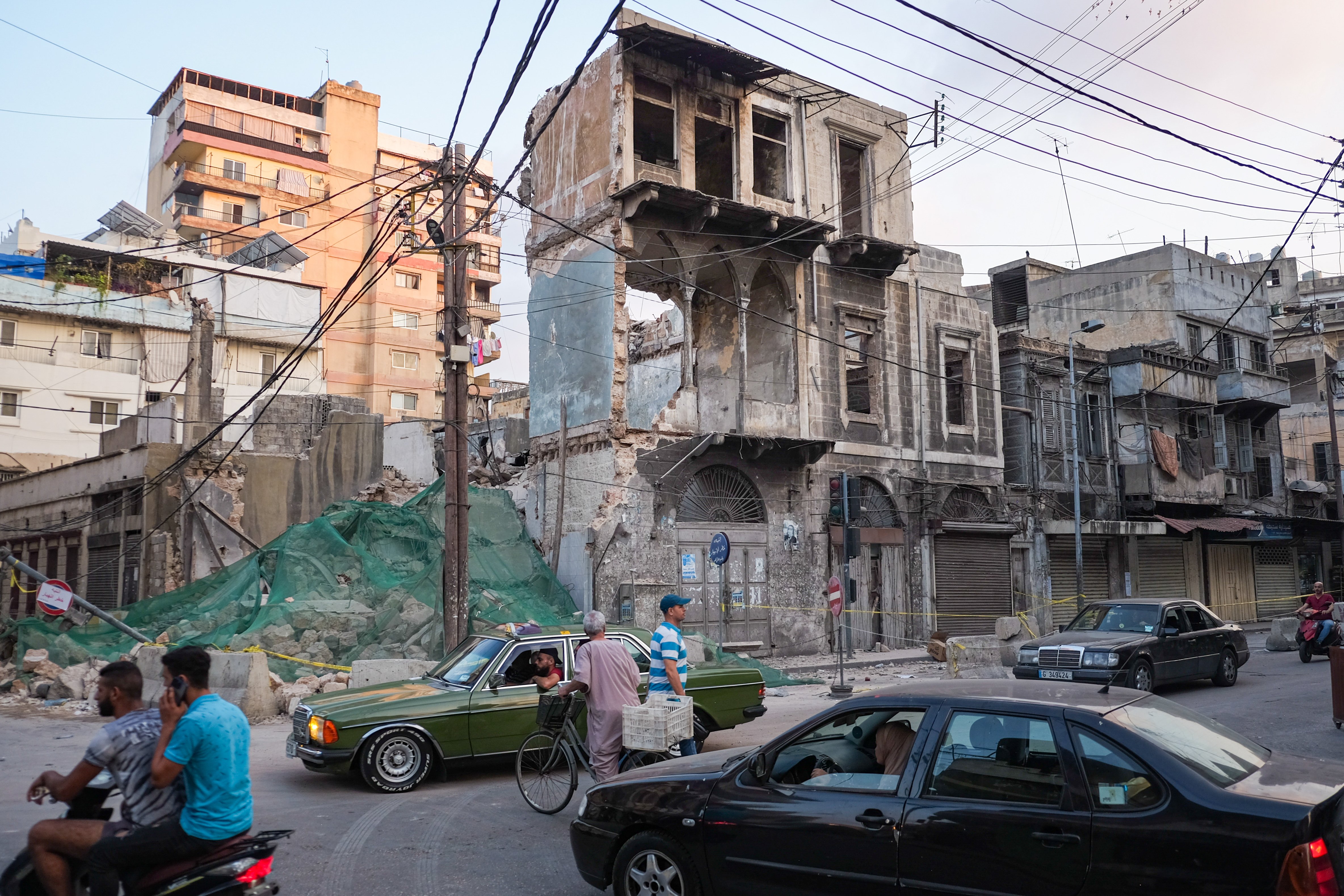 Remains of a collapsed building in Zahriyeh, Tripoli, on Sept. 21, 2023. (Credit: João Sousa/L'Orient Today)
Remains of a collapsed building in Zahriyeh, Tripoli, on Sept. 21, 2023. (Credit: João Sousa/L'Orient Today)
Further parts of the building at risk of collapse
Tripoli has seen a number of historic buildings collapse in recent years, sometimes injuring or even killing residents.
Many of these structures are aged and lack the necessary reinforcement to withstand the test of time, weather changes and earthquakes.
The Zahriyeh building collapsed on a compound comprised of several blocks, property owner Tarek al-Meer explains to L'Orient Today. Without proper reinforcement, the compound's remaining sections of blocks remain at risk of collapse.
Two bustling streets adjacent to the property, which were closed off following the collapse, were reopened soon after the main collapse.
Sweet shops in the building facing west remain open and clean laundry dries outside on the balconies of buildings across the street.
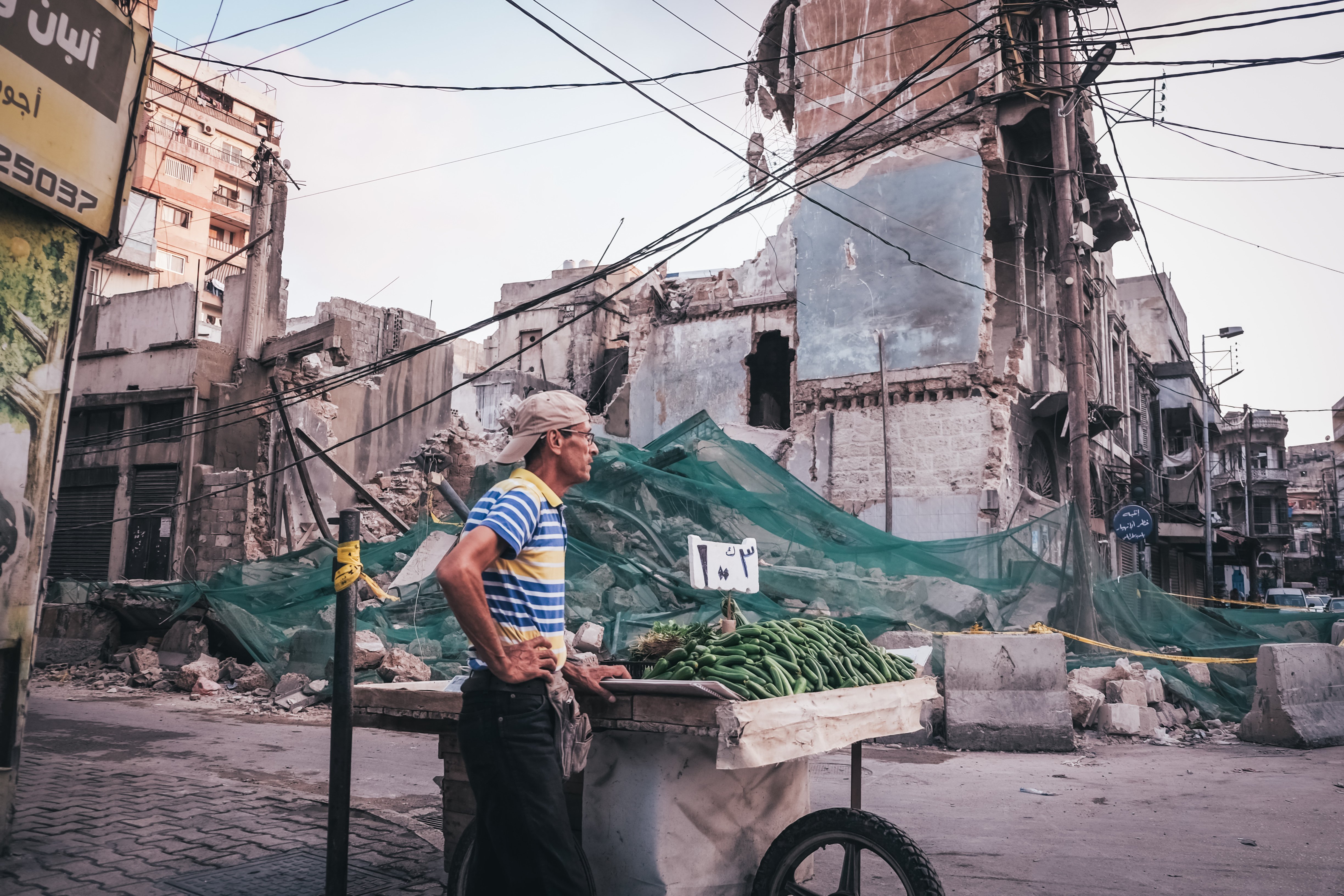 Street view near the collapsed building in Zahriyeh, Tripoli, on Sept. 21, 2023. (Credit: João Sousa/L'Orient Today)
Street view near the collapsed building in Zahriyeh, Tripoli, on Sept. 21, 2023. (Credit: João Sousa/L'Orient Today)
Fadi Abdallah, who himself lives in an old house with fissures and cracks in the walls, sells coffee across from the crumbled compound. He says he now thinks twice before walking under the building and never passes by the section of the compound that remains at risk of collapse.
Abdallah said he believes the weather in Lebanon in recent years — "storms, winds, torrential rain" — is bound to affect the old houses in Tripoli this coming winter. "The winters are nightmarish for me," he says, adding that there is a massive crack in the ceiling of his home.
A vegetable cart salesman who introduces himself as Geroge Murad says he sells his wares next to the collapsed building every day.
Asked if he fears the structure that might further collapse, he says, “Whatever God wishes will happen.”
